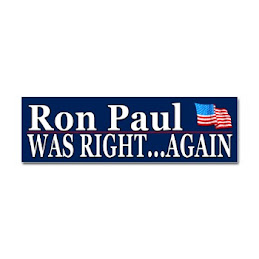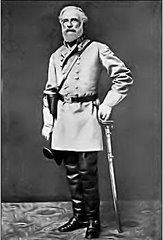(this blog is similar and inspired from John Stossel's blog, The Double 'Thank-You' Movement."It is, however, written from the words of author, Ryan Hampton).
Have you ever bought something from somebody, said "Thank you," and then heard they seller say "No, thank you" to you? For one, it is common courtesy, especially for the person selling the item(s) bought, but it also shows happiness on the part of both of you, that you are now happier. You want the item more than the money. The owner wants the money more than the item. The worker wants the job so that they get a portion of the money in return.
But what if some outside force kept you from making the deal? You would not be so happy. What if they made a control on the item, that it may not sell for any more than a certain amount, or for any less than a certain amount? What if they told you that you could only buy a certain amount at one time, or told the seller that they could only make so much profit? Or what if they took money that you had earned and spent it on you the way they wanted to, without your consent?
Needless to say you’d be ticked. For economist, it is needless to say what force I am referring to. The Government. Yes, the Government, even the government of ‘capitalist’ America.
You may not realize that the government does all of this, but they do things very similar. You don’t realize it. Children think it is bad when their parents (with legal and moral authority on the children) give them advice, or tell them which paths to take. However, people are relying on the government too much. Children don’t take everything their parents tell them as true. But it is probably a lot more true than what the government teaches us. Children don’t think that their parents advice for saving money is good. However it is better than the government force in our pocketbooks.
How does the government influence our personal economics? A few examples are minimum wage, public education, and price caps. Minimum wage takes away from a free market because the government uses force on the economy, making it not free, but forced. Although it seems as if minimum wage helps the little guy, a closer look shows it hurts the little guy (I do not have time for all the reasons why on this blog, but you can look at other blogs I will have listed below).
Public education is another way the government influences our economy, as well as our personal lives. The idea that America has a free educational system is farther from the truth than what the earth is from the sun. The government takes your money through taxes, and then uses a portion of that (a very large amount) on education. In fact, this amount is larger per child than what the average private school costs. The government takes your money and spends it on something that they see fit for you. Sure, education is important, but do you want it to come from the government? (Again, I don’t have the time to post all on this topic on this blog, but look at the other blogs listed below).
Price caps are dangerous as well. It keeps people from taking risks on business, knowing that there is a forced limit to their pricing. The less risks people take on business, the less business we have, and thus the less competition to keep prices low in the first place. Also, these business will probably not have all the effects that the business make who do take large risks for business. Price caps drive away profit, business, and products. If the product is not worth it, then don’t buy it!
These are just a few ways the government influences the economy, and to these reasons and most all of the others, I say "No thank you." I will show thanks for the free market when making a purchase or selling an item, but will not ask for the government’s help (or lack thereof). John Stossel said, "I get scared when I hear politicians say things like(see link at bottom) ‘I am for free trade but also fair trade.’" The truth is, free trade is most always more fair than government forced trade, or lack of trade. We don’t really need the government for as many reasons as we may think, and in reality, the government probably need the people more than the people needs the government. We don’t need the government telling us how much something is worth, or how much is too much. We do that on our own. If we make mistakes that is our own fault. We should not have the government taking money from the economically wise to promote the general good of the economically illiterate and stupid. That just encourages us to be glutton pigs instead of hard working humans. That is basic communism, not a basic free market society. So to the government, no thank you, and to the person at Wal-Mart who sold me the Fathers Day card and birthday card for my cousin, "Thank you; ‘No, thank you!’"
See blogs, "The Double 'Thank-You' Movement" by John Stossel, http://www.realclearpolitics.com/articles/2007/05/the_double_thankyou_moment.html
"Competition Works. Let It Help The Schools." by John Stossel, http://www.realclearpolitics.com/articles/2006/03/competition_works_let_it_help.html
"The Ignorence of a Minimum Wage Argument" by Ryan Hampton, http://ryanhampton.blogspot.com/2007/01/ignorence-of-minimum-wage-argument.html
"My Thoughts on School Vouchers" by Ryan Hampton, http://ryanhampton.blogspot.com/2007/01/my-thoughts-on-school-vouchers.html
"Problems With Education" by Ryan Hampton, http://blog.myspace.com/index.cfm?fuseaction=blog.view&friendID=77069405&blogID=153516180
"Taxes and Government" by Ryan Hampton, http://blog.myspace.com/index.cfm?fuseaction=blog.view&friendID=77069405&blogID=135528600
"The Hypocrice of Minimum Wage" by Josh Rutledge, http://daygrind.blogspot.com/2006/07/hypocrisy-of-minimum-wage.html
See Presidential Candidate Mike Huckabee's page to see him talk about 'Free but fair' trade ==> http://www.explorehuckabee.com/index.cfm?FuseAction=Issues.View&Issue_ID=5
Friday, June 15, 2007
Subscribe to:
Post Comments (Atom)










No comments:
Post a Comment